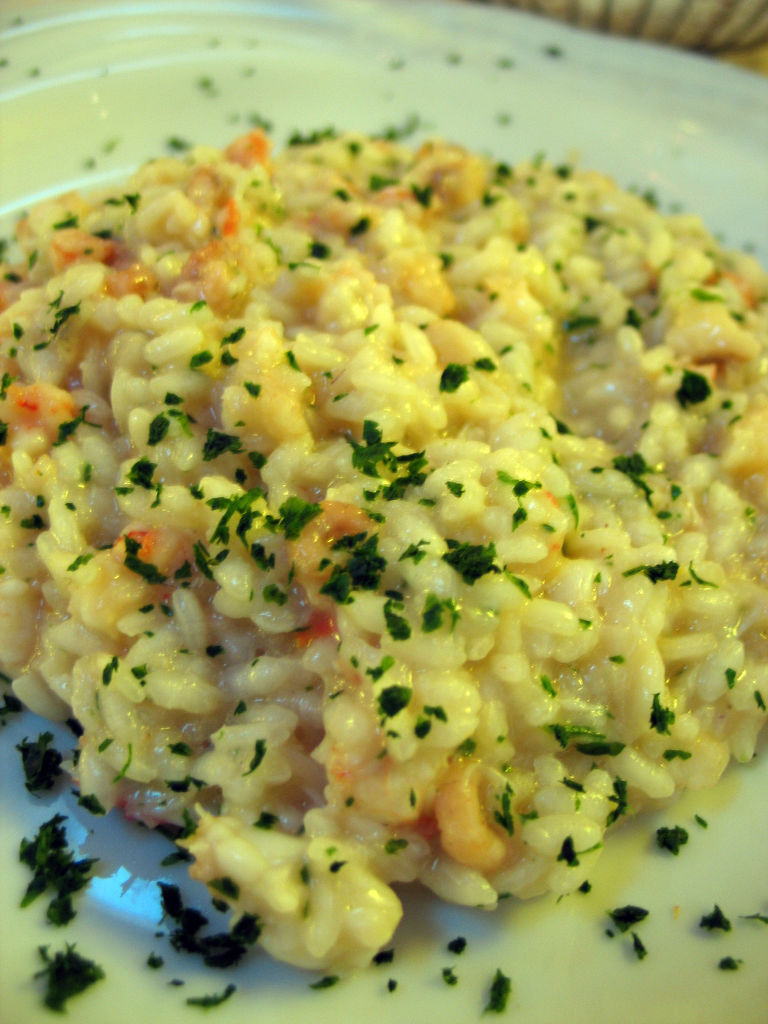The Independent newspaper has a great story about people in Britain who are trying to make a buck (or rather a pound, I suppose) from nature’s bounty. There are five examples, ranging from a guy making sloe gin to another who sells a chopped up, boiled seaweed called purple laver (Porphyra umbilicalis). That’s apparently the basis of an intriguing traditional Welsh treat called laverbread. How do these products reach consumers? A separate article – this one in The Times – on country markets provides one answer.
Cassava in Africa
Cassava has a big problem in Africa, and it is called brown streak virus. A virulent strain is spreading rapidly across eastern and southern Africa from a beachhead in Zanzibar, devastating the tubers but leaving the leaves looking healthy, which means farmers don’t realize anything is wrong until it is too late. Scientists from the International Institute for Tropical Agriculture (IITA) have been studying the virus and have developed resistant varieties, by conventional breeding, and these are finding their way to farmers.
There’s a short SciDev piece about brown streak virus which points to a longer, very readable New Scientist article. I know we’re talking about a very serious problem and a very nice solution based on the exploitation of agricultural biodiversity, but normally I wouldn’t blog about this sort of thing, simply because there are so many similar examples out there. But I was inspired to do so on this occasion because I also spotted an article in a Ugandan newspaper (via the wonderful allAfrica.com) which talks about the resistant varieties and efforts to get sufficient planting material of these cultivars into the hands of farmers in a particular district. It’s always nice to see “big” stories from international news sources reflected in the local media.
Cassava is an important constituent of Kinshasa’s urban gardens, whose role in providing nutrition, especially to children, is so well described in a Christian Science Monitor article today. Let’s hope brown streak virus doesn’t reach Kinshasa, but if it does the resistant varieties would find a ready means of dissemination through a project which “organized a team of local volunteers called “Mama Bongisa” (‘mom improver’) to teach mothers in some … impoverished neighborhoods about nutrition and farming.”
Undoing millennia of barley selection
Generations of beer-loving farmers have bred seed dormancy almost entirely out of barley, so that the grains will readily germinate in the malthouse. Unfortunately, that means that malting varieties are sometimes prone to jumping the gun and sprouting before harvest, while the crop is still standing in the field. That means that the grain cannot be used to make beer. Not a good thing.
Fortunately, a PhD student in Australia, a land well known for its love of the amber nectar, has compared the barley genome with that of Arabidopsis and identified some bits which may contain previously unknown dormancy genes. Should a negative effect on pre-harvest sprouting be confirmed in the field – and trials are under way – breeders could use markers for these genes to help them select genotypes which will only sprout where it would do the most good: in the maltings.
Alternative livelihoods
Do wander over to the latest edition of New Agriculturist, which, among other things, has a great feature giving examples of farmers adopting new crops and other ways of making a living as alternatives to illicit, environmentally damaging or otherwise inappropriate ones.
Rice in Italy
 No, not Condy Rice seeing the sights: rice the crop, and its future in Italy. It may surprise some people that rice is grown in Italy, but it has a long history of cultivation in the Po Valley, and an important place in the local cuisine, as anyone who has eaten risotto will testify. Unfortunately, the ongoing drought in the region is causing severe problems for thousands of rice farmers (among others) in the Val Padana. Some people are saying that’s the shape of things to come, with climate change and all. But here’s an interesting juxtaposition of news: it’s been announced that the Slow Food Foundation for Diversity, based in Tuscany, is to start marketing in Europe a traditional, organically grown, Filipino rice known as “unoy.” Isn’t globalization wonderful?
No, not Condy Rice seeing the sights: rice the crop, and its future in Italy. It may surprise some people that rice is grown in Italy, but it has a long history of cultivation in the Po Valley, and an important place in the local cuisine, as anyone who has eaten risotto will testify. Unfortunately, the ongoing drought in the region is causing severe problems for thousands of rice farmers (among others) in the Val Padana. Some people are saying that’s the shape of things to come, with climate change and all. But here’s an interesting juxtaposition of news: it’s been announced that the Slow Food Foundation for Diversity, based in Tuscany, is to start marketing in Europe a traditional, organically grown, Filipino rice known as “unoy.” Isn’t globalization wonderful?
Photo from ciordia9 on Flickr provided under a Creative Commons license.